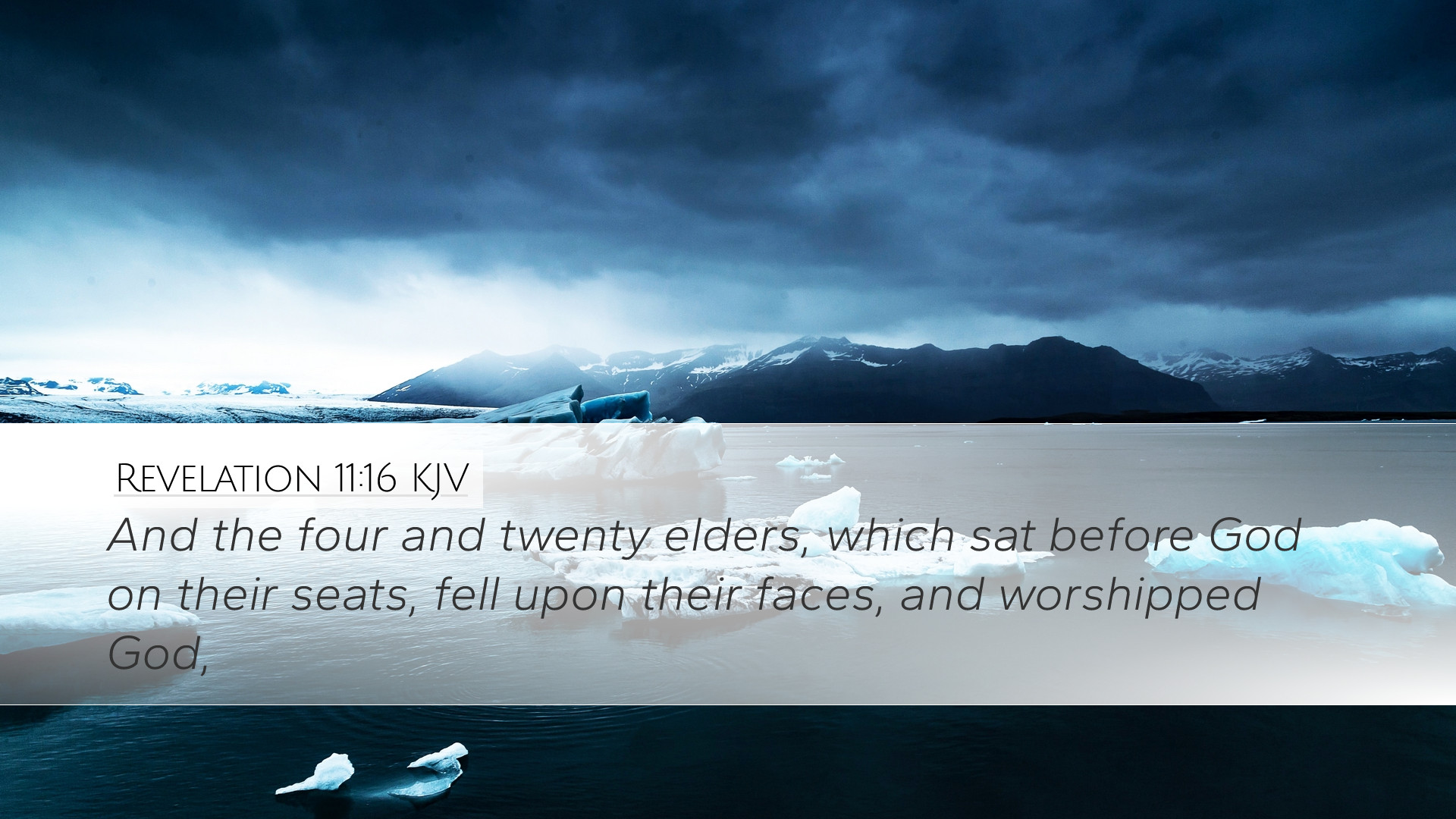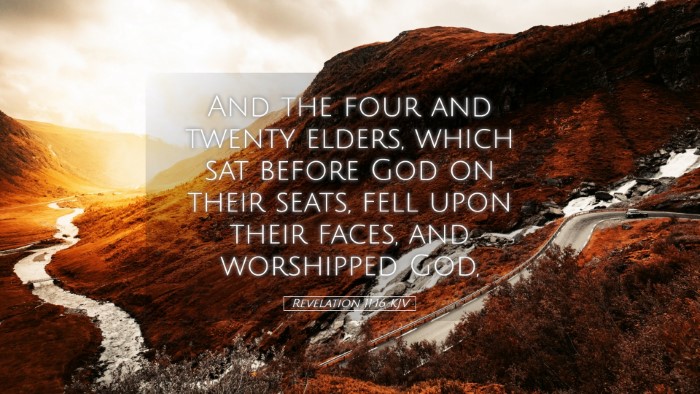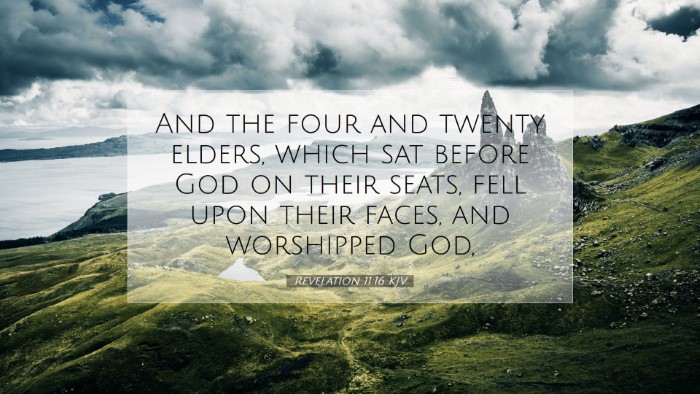Commentary on Revelation 11:16
Revelation 11:16 states: "And the four and twenty elders, which sat before God on their seats, fell upon their faces, and worshipped God." This verse captures a moment of worship in the eschatological vision given to John. The response of the elders highlights themes of reverence, authority, and the ultimate recognition of God's sovereignty.
Contextual Overview
This passage occurs in a section of Revelation that portrays significant events, characterized by cosmic upheaval and divine judgment. The twenty-four elders represent both the Old and New Covenant people, signifying the unity of the Church and Israel in God's plan.
Insights from Commentaries
Matthew Henry's Commentary
Matthew Henry offers profound insights regarding the identity of the twenty-four elders. He suggests that these elders symbolize the church in its heavenly glory, representing the faithful who have been redeemed and glorified. Their actions of falling down and worshiping God reflect themes of humility and acknowledgment of God’s majesty.
Henry emphasizes that this worship is a response to the recognition of God’s might and authority. The behavior of the elders indicates a posture of reverence and submission, highlighting the importance of worship in the life of believers, particularly in recognizing God’s sovereignty over history and creation.
Albert Barnes' Notes on the Bible
Albert Barnes elaborates on the symbolism of the twenty-four elders, suggesting they represent the leaders of God’s people, both from the Old and New Testaments. He notes their positions "before God" denote a place of honor and their willingness to surrender themselves to divine authority.
Barnes warns that worship should be both spiritual and genuine, reflecting the inner commitment of believers. The phrase "fell upon their faces" signifies complete submission and adoration, reminding pastors and scholars that true worship involves both body and spirit.
Additionally, Barnes highlights that this moment serves as encouragement for believers, indicating that faithful worship will eventually lead to recognition of God’s ultimate reign.
Adam Clarke's Commentary
Adam Clarke provides a detailed analysis of the significance of worship in this passage. He defines worship as an intrinsic response to the greatness of God, and here, the act of the elders indicates a universal truth in heaven—the acknowledgment of God’s unchallenged authority.
Clarke also emphasizes eschatological implications, where worship in the heavenly realm reflects the necessary orientation of humanity toward God. He states that the action of the elders demonstrates that acceptance of God’s authority in the present life will yield joyful participation in the heavenly chorus.
- Theological Reflection: Clarke prompts readers to consider the implications of divine worship on individual and communal living.
- Practical Application: He calls for believers to embody such reverence in their personal worship experiences and church gatherings.
Implications for Worship Today
The passage encourages the contemporary church to reflect on the nature of true worship. It suggests that worship should stem from awe and reverence for God’s character and works. The actions of the elders can be instructional in crafting worship experiences that promote genuine engagement with God:
- Position of Reverence: Worship should involve a genuine heart posture before God, recognizing His holiness.
- Community Worship: The unity represented by the twenty-four elders invites church congregations to worship collectively, acknowledging God's greatness as His people.
- Worship as a Life Posture: Worship should not only be a moment in a service but a continual state of heart and mind aligned with God’s will.
Conclusion
Revelation 11:16 serves as a powerful reminder of the centrality of worship in the life of believers. Through the insights of Matthew Henry, Albert Barnes, and Adam Clarke, we gain a deeper understanding of the significance of the twenty-four elders and their response to God. This verse invites all—pastors, students, and scholars—to consider the profound nature of divine worship and its impact on both the individual and the community of faith.


